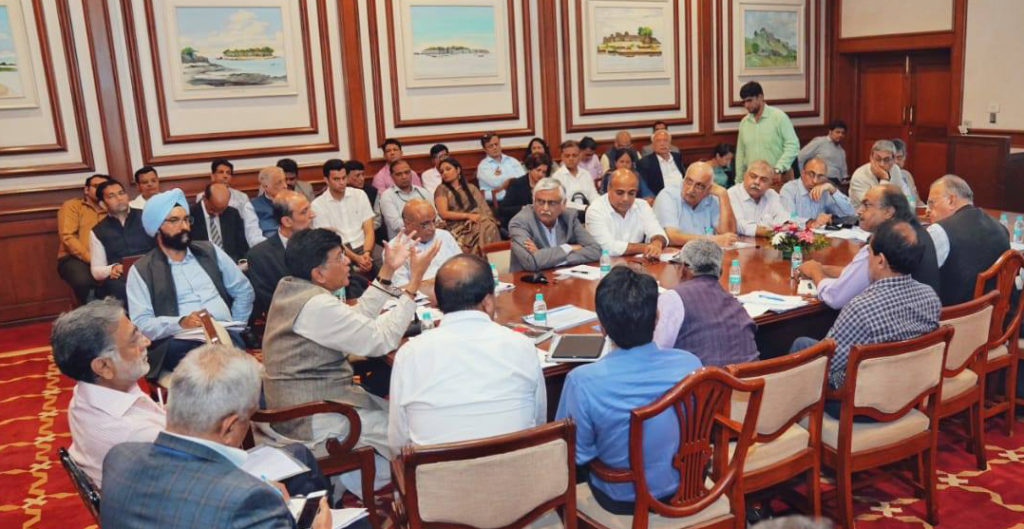Farmers represented by various bodies have intensified their campaign to keep agri produce and dairy products out of the ambit of RCEP talks currently underway. While a team of the farmers’ bodies have met the Minister of State of Fisheries, Animal Husbandry and Dairying Sanjeev Kumar Balyan, another one, in which GCMMF MD R S Sodhi also participated, have met Industry Minister Piyush Goyal.
The leaders have requested the ministers to keep agriculture and dairy out of the RCEP talks. It is believed that the Ministers have assured them that dairy would not be kept in the list.
It bears recall that India is presently negotiating with 15 other RCEP member countries on host of issues related to free trade. The Hindu quotes ”R.S. Sodhi, Managing Director of GCMMF is also believed to have made a presentation to Mr Piyush Goyal, Union Industry Minister, urging the Centre to leave the dairy sector out of RCEP”.
Replying to a query from Indian Cooperative Sodhi promised to come out with the details of his meeting with Goyal soon.
Earlier, in these columns we discussed how the representatives of New Zealand Government, their lobbyists and their RCEP negotiators have spread a false story that New Zealand already has FTAs with many large markets and will have barely 5% of its exports available for India if India opens its markets and so it should not be perceived as a threat.
If Indian Government and its RCEP Negotiators get convinced by this argument, then India will have become the top 5 export destinations of New Zealand.
How damaging could be even this 5 percent could be understood from the fact that 5% of total NZ exports of 34,47,000 (almost 35 lac MTs) to India is 1.72 lac MTs, which is almost one third of the total domestic production. Thus, India, will in effect, be surrendering 1/3rd of their total market to New Zealand.
We should not therefore assume that a small market access of just 5% of New Zealand producers will have no impact on our domestic producers, warns experts of the industry.
And if other RCEP countries too eye Indian market, the domestic production will totally collapse and India will become a net importer of dairy products at the cost of Indian milk producers, they asks. The situation will be unimaginable if the Government of India pursues similar FTAs with EU and gives market access to USA also, they felt.
It bears recall that India is the largest producer and consumer of milk in the world. There are demands from several countries to open up the Indian dairy market and this would have a detrimental effect on the Indian dairy industry which is a major source of livelihood and sustenance for our 10 crore milk producers.
It is not for nothing that Amul Vice-Chairman Jetha Bharawd raised the matter in the Assembly, they remind. India’s milk production increased from 80 million MT in 2000 to 180 Million MT at present and is likely to go up to 330 Million MT by 2034 as per an analysis.
Allowing imports of any dairy product under any FTA/ RCEP would not augur well for the dairy industry with 10 crore farmer families dependent on it. New Zealand’s total population is just 48 lac compared to 134 crore of India. There are just 10,000 dairy farmers in New Zealand compared to 10 crore in India.
